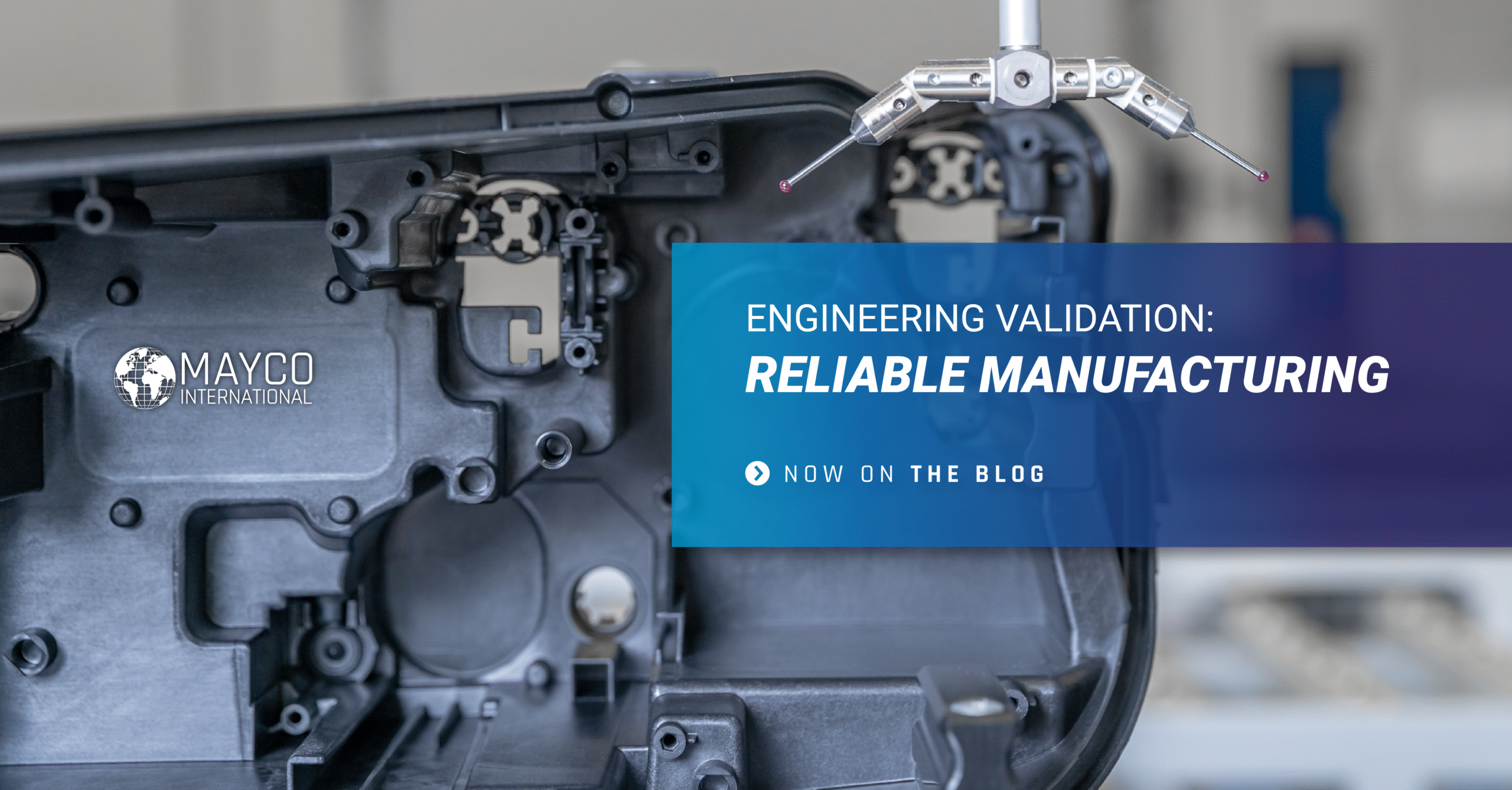Oct 01/25
Engineering Validation: Ensuring Reliability in Manufacturing

By confirming that processes, equipment, and products function as intended, validation ensures manufacturers can deliver consistent quality and dependability. Without it, production risks increase, costs rise, and one could even lose customer trust. With the recent uptick in global manufacturing, this is more important than ever.
For companies such as Mayco International, engineering validation forms the foundation of manufacturing reliability and ongoing process improvement. Read on to learn about the details.
What Is Engineering Validation And Why Is It Critical In Manufacturing?
Engineering validation is the process of testing and confirming that manufacturing systems perform effectively under realistic conditions. Its purpose is to prevent failures before products reach the market and to secure production quality assurance at every stage.
It means verifying that individual components meet specifications. It also involves validating that the full production process can always achieve the expected outcome.
At Mayco International, this principle is central to operations. From the earliest prototype to large-scale production, every step undergoes validation to guarantee quality and consistency. Such efforts provide a high level of confidence that products do the following:
- Meet safety standards
- Function as expected
- Satisfy customer demands
By focusing on validation early and throughout production, Mayco ensures greater efficiency and fewer issues downstream.
What Are The Common Validation Techniques Used To Boost Quality And Reliability?
A broad range of validation techniques is used to strengthen manufacturing reliability and improve efficiency. Techniques like these test both the durability of materials and the stability of processes.
For example, manufacturers may validate a process through the following:
- Controlled trials
- Stress testing
- Statistical monitoring
They may also validate prototypes to ensure that designs translate into production.
Mayco International applies validation at every level of production. Instead of relying solely on inspections at the end of the line, Mayco integrates validation into the:
- Design phase
- Tool creation
- Material selection
The outcome is not only better quality but also enhanced operational efficiency.
How Does Process Improvement Tie Into Engineering Validation And Manufacturing Reliability?
Validation is not a one-time activity but part of a continuous cycle of process improvement. When validation reveals weaknesses or inconsistencies, manufacturers can:
- Adjust designs
- Tefine methods
- Improve controls
By measuring performance and correcting shortcomings, manufacturers avoid costly recalls and downtime. Mayco International uses this approach to create lasting improvements in its operations. The company views engineering validation not as a box to check but as an ongoing investment in manufacturing reliability and customer satisfaction.
The Differences Between Verification and Validation
Verification and validation are often mentioned together, but they serve different purposes. Verification confirms that individual parts or components meet their exact specifications.
Validation ensures that the entire process and product will perform as intended in real-world conditions. Verification is focused on details, and validation is focused on general performance.
It’s Time to Make the Most Out of Engineering Validation
By streamlining your engineering validation, your company can accomplish more than ever before.
Mayco International has partnered with many of the world’s biggest brands, including BMW, Amazon, and Volvo. The Mayco International team provides tier 1 development, validation, and much more.
Are you ready to excel? If so, don’t wait to reach out to the award-winning team for a quote based on your vehicle needs.

